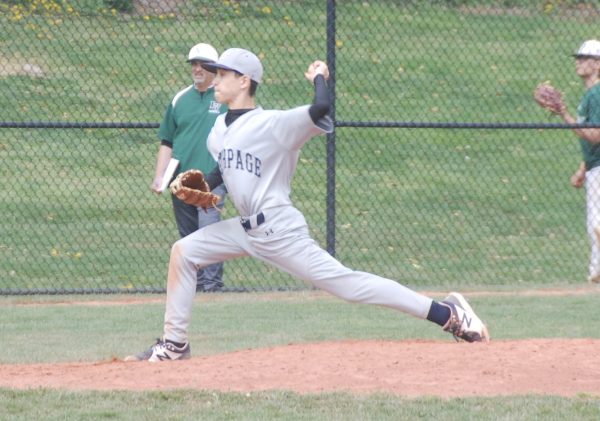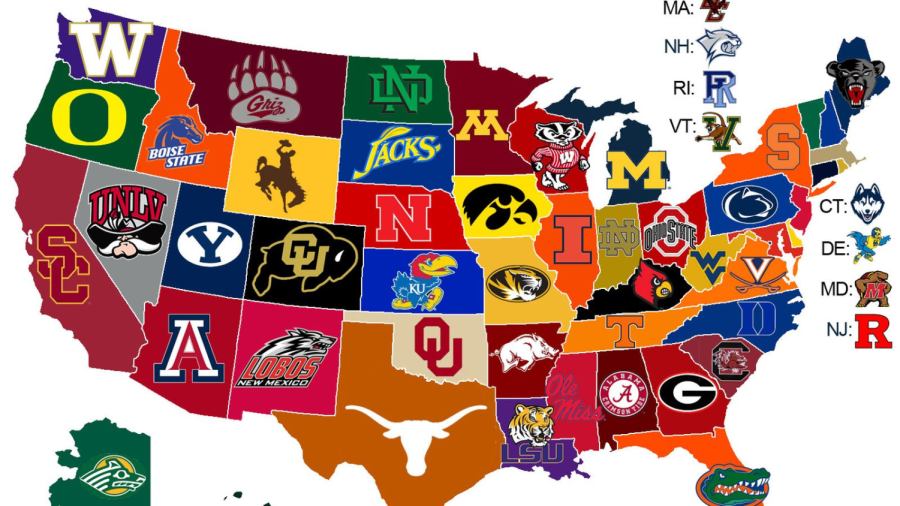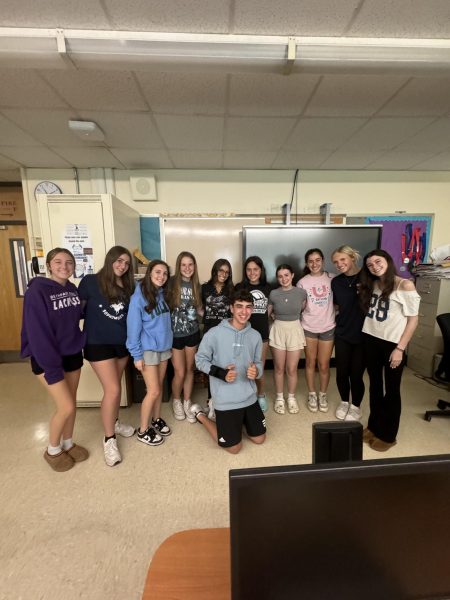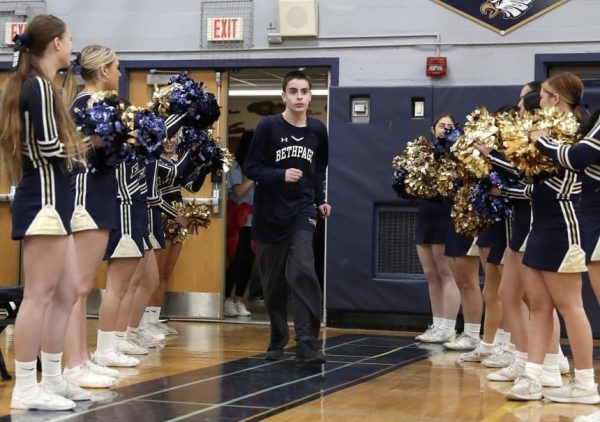Is The Life Of A Collegiate Athlete Right For You?
Is the life of a collegiate athlete right for you?
D1, D2, D3, or even JuCo, college sports take a big commitment. Many aspire to play at the biggest schools at the highest level, but is that a commitment you want to make?
As high school students, we are often asked to think about college. Many high school athletes hope to continue their athletic career at the collegiate level, but that level takes a huge commitment. We talked with athletic directors, former college athletes, and D1 aspiring students to get a sense of what that college commitment is.
Athletic Directors
Molloy University is a D2 school with a rich history in sports. From back to back baseball and soccer championships to winning Commissioner’s Cups, Molloy excels in athletics. So who better to talk to then the director of it all, Mrs. Susan Cassidy-Lyke. As the Director of Athletics at Molloy, Mrs. Cassidy-Lyke has a front row seat in the life of a student athlete.
It goes without saying the troubles that student athletes face are massive. She said, “I would say that the hardest thing for our student athletes would be finding balance between their academic, social, and sports lives. We demand the most of our athletes, whether that is on the field or in the lecture hall. That being said, our teams are like families so being on one is a wonderful experience.”
Many believe that the life of a student athlete is far better than that of an average student, but at Molloy, this is not the case. “Athletes are students. They still have to go to class and get good grades, but they are athletes. However they do enjoy having people come to watch them which is something that our average student does not have. They get to travel to opponents like schools in Buffalo, Florida, South Carolina, and Tennessee.”
Here at BHS, our athletic director Mr. Franchi was eager to talk about his role in the recruiting process. Many believe that the person who plays the biggest role in the process is the director of it all, but, according to Franchi, it falls more into the coaches. “I don’t have much of a role, but a lot of time coaches will come here and want to meet with the athlete. I work to set up that meeting and usually sit in to act as a translator of sorts for the student. A lot of times our coaches—Coach Fisher, for example—reaches out a lot to the college coaches that he knows. Coach Kramer for Boys Soccer[and]Coach Kildare [for] Girls Lacrosse [do the same and]know a ton of college coaches.
It is no surprise that the Director of Athletics has some inside information on the experience of a college athlete. Franchi said, “It’s a full time job whether you’re playing D1 or D3. It’s very hard, so it has to be something that you’re sure you want. You also should pick it based on your future. Make sure it fits the job you want.”
From the experience of our athletic directors, the ability to pick a college based on education is a very important task. It is a necessity to remember that college is for education, so you want to attend a university that will best prepare you for your future.
Former College Athletes
Bethpage has many teachers who excelled at the collegiate athletic level. Of them is Mr. Ravener, former All-American cross country and track/field athlete. Mr. Ravener split his time in college at Stony Brook University (D1) and Ithaca College (D3). He was a scholarship athlete, so he knows the tips and tricks on how to get you there.
Mr. Ravener has many great memories from his time as a college athlete.When asked about his favorite memory, he remembered his most competitive race. “…There’s one race I remember at our State Championships indoors. We were in second place in the 4x400m when I got the baton. Rochester had about a 3 second lead and I was able to run down their anchor in the last 100m and out leaned him at the line for the win. One of my assistants came over and gave me a huge hug and said ‘Thank you!’, which she never has before. I said ‘for what, winning?’ She replies, ‘yes but no. The Rochester coach thought they had the victory with 200 meters to go and said, ‘See ya later Ravener!’ and started celebrating with the other guys on the relay. I honestly didn’t think you were going to get him either but then you did what you always do’… One of my favorite memories for sure.”
As the current varsity track coach at BHS, Mr. Ravener still has a role in the recruiting process. He has been through the same process that he coaches his kids through, so he has some advice to share. “You can get scholarships for academics so it doesn’t have to be in athletics. D3 programs do not give out athletic scholarships so your grades are always important because you can get an academic scholarship. And if you are an athlete looking to compete in college, D3 is highly competitive.”
Mr. Ravener is not the only collegiate athlete in the district. JFK Middle School is also home to former D1 soccer player Mrs. LaLuna. Mrs. Laluna played D1 soccer at St. John’s University as a scholarship athlete.
Just like Mr. Ravener, Mrs. LaLuna has many great memories. Her favorite came after a loss in her last ever home game. “My dad was my mentor in soccer and would always yell “BTB” to me from the sidelines. “Be the Best.” It was our little phrase that helped me stay focused and let me know he was always there to support me. We ended up losing this game and I was beyond devastated. I knew I would never play soccer again. I was 22 years old and had just been through a war. Tears were streaming down my face as I walked off the field to where my dad waited for me. He gave me a hug and just whispered “BTB” in my ear. It was my favorite part of playing soccer ever, even though it was sad. That day meant so much to me, and my dad and I will never forget it.”
Being a collegiate athlete takes a big commitment and there is no debate that you will have to overcome a series of challenges. The biggest challenge for Mrs. Laluna was balance. “Managing my time between practices, games, and schoolwork [was difficult for me]. My freshman year, I missed 13 Friday classes because of traveling with the team. I had to make up a lot of work on my own. I had a full scholarship, but part of it was for academics. I needed to make sure I kept my grades up every year if I wanted to keep that part of my scholarship.” Sports are not the only thing in your college life, education is the reason that you’re there in the first place. Finding a balance between academics and athletics is an important task for any athlete.
Some perks come along with scholarships, and Mrs. LaLuna took full advantage of them. “When I signed my letter of intent to go to St. John’s, I asked for three things in addition to my scholarship. First, I wanted to be able to have my car on campus as freshman. This normally wasn’t allowed, but since I was an athlete, I was able to have my car. Second, I wanted my own room. I was in a suite with 7 other girls, however, within the suite, I had my own room. Third, I wanted to have my number that I wore my entire life; 13. I was lucky enough to wear that number all 4 years.”
Different colleges have different methods to provide the athletes with what they want. Many include offering perks like the ones Mrs. LaLuna requested. Before signing a letter of intent, it is important to make sure that you are not missing out on any advantages that you could receive.
Student Athletes in HS
As high school student-athletes, we often think about how our college experience will go. Some decide that they want to play at the college level. Sophomore Jadyn Hsu represents this perfectly. Jadyn hopes to play soccer in college, but hasn’t decided where she wants to go.
It is no surprise that in order to get a scholarship you have to put in a lot of work on and off the field. Jadyn has been working hard to reach her goal. “I’ve been emailing college coaches, going to clinics and showcases, and posting highlight videos.”
As a college athlete, there are many challenges. There are also a lot of good things that come along with an opportunity. Jadyn expressed what she is worried, yet excited to see if she makes it. “The hardest thing will be balancing school with soccer. To keep up with due dates and to make all of my practices will be difficult. That will help me work on time management which is good and it’s always fun to be part of a team.”
Sports in college may seem like the best thing you could have,but it is important to remember that you are going to college to set yourself up for your future. Jadyn closed off the interview by saying, “I want to make sure that I like the school for its academics and not just the sports.”
“4th Quarter”
It is clear that the student athlete experience sparks wonder for students all over the country. It takes a large amount of time and commitment to reach that level and to stay there, but the advantages of being a student athlete are clear.
If you’re a student who hopes to be a college athlete some day, consider asking your coaches, teachers, and athletic directors for help. They will be happy to provide you with advice on how to reach your dreams.

Zach Fradella is currently a junior at Bethpage High School. He is in his second year at The Eagle’s Cry. He plays baseball, golf, and soccer. His favorite...












